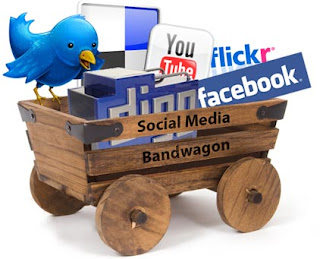You’re not the only one. I know I’ve been there more than once since being self-employed. I have been tempted to quit on projects or promotions that weren’t going strong on more than one occasion. And I’ve even contemplated given up on self-employment when the chips were down and times were tough.
I know it costs money and sometimes its a sacrafice but Don�t Give Up Too Easily (Clients Are Just Around the Corner)
Many of life’s failures are people who did not realize how close they were to success when they gave up. — Thomas Edison
There comes a point when being a business owner gets really hard (and I mean really hard). You’ve come up with your big idea, you’ve done all the initial legwork to set it up, and now comes the hard part: Getting the word out about your business and, more importantly, hanging in there while you get the word out about your business. The hard part now becomes not giving up too soon.
THE REAL WORK
When you start a business, when you start a new product or service, when you launch anything really, that’s when you feel like you’re working really hard. That’s when you’re willing to stay up late and get up early to get all the groundwork completed so that you can start making money. As hard as it can seem during this time, you generally know what to do, or you can at least figure out what to do, and you just plow through getting the work done. Then you finish the work. (Cue sound of crickets.) Now what?
All right, now you figure out that you need a marketing plan. Great, that gives you something else to do! You finish the marketing plan and begin implementing it. (You believe in this plan. You’ve given it a lot of thought. You feel really confident about it. It’s going to generate the business you need.) You run through your plan for several days, maybe even several weeks, and then … nothing. Nothing happens, and in our instant-gratification-seeking world, this is where things start getting testy:
When you’re over the rush of your big idea,
When you’ve completed the work of creating it,
When you need to pay the bills, and
When it feels like you’re sitting on your laurels.
When you’re doing all that initial setup (building your website, creating the product, etc.), it feels like real work. Marketing doesn’t feel like real work, and it gets harder to justify and explain to those around us, particularly those who don’t have businesses. Marketing? What’s marketing? Building a website people get; that sounds like real work. Marketing? Marketing on Facebook and Twitter? All right, now you’re just playing around. Those are the conversations you have, both with yourself and with others, for justifying what you’re doing.
Writing posts for your blog, replying and posting on social networks, doing interviews, commenting on other sites and forums, searching for opportunities to guest post — all these things don’t feel like work, but they’re very necessary for building a successful business, and sticking with these activities for the bulk of your time each day for the six months or year it’s going to take you to gain some traction seems impossible.
NOT GIVING UP
So, how do you do it? How do you avoid giving up too soon?
You make a commitment. Do you want to do this? Are you willing to bet the next 6-12 months of your life on it? You have to be willing to say, “This is my commitment. These are the milestones I intend to reach. This is my intention.”
You maintain discipline. Each and every day, you have to say, “This is what I’m committed to doing. These are my top priorities.” You have to focus on what you believe to be the “highest and best use” tasks that will get the word out about your business and start generating income for you. You stay focused, not only on what you’re going to do, but also on what you’re not going to do (compulsively checking email, surfing the Internet, taking a dozen breaks each day, etc.).
You trust your plan & your marketing consultant. You’ve given a lot of thought to the best way for promoting your business, and now you just have to believe in it. Don’t keep switching plans and changing things up. It’s going to take time to see results. Give yourself at least a 90-day test with your current plan before doing any tweaking.
Be willing to stay up late and get up early. Although it’s not easy to think about, success isn’t just going to be handed to you. You’re going to have to roll up your sleeves and do the hard work to get things going. No one’s going to do it for you. As you start to get more successful, you still have to continue getting the word out, and juggling priorities can be a challenge. Know that handling incoming work and generating opportunities for future work are equally important.
Find support. Get an accountability partner to help you stay the course. It’s a lot easier to waiver when you don’t have someone else holding you responsible and accountable for your original plans and intentions.
Finding a way to hang in there and not give up on your vision can be the hardest thing you ever do to see your business to success, but you have to figure out how you’re going to stick with it for the time it will take to gain some momentum and start seeing results.
(We would like to thank Amber Singleton)











